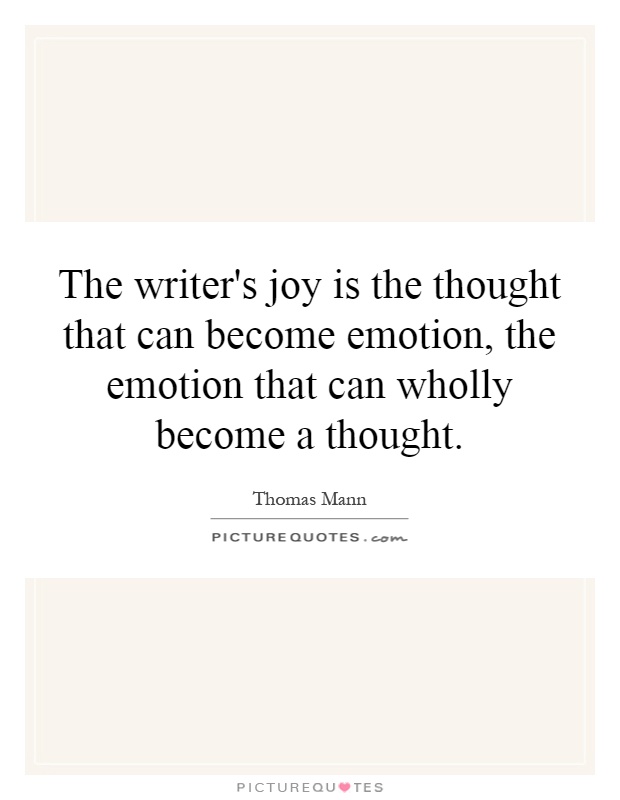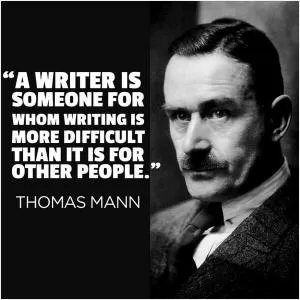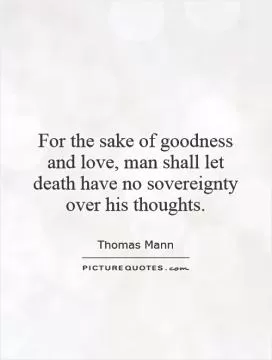The writer's joy is the thought that can become emotion, the emotion that can wholly become a thought

The writer's joy is the thought that can become emotion, the emotion that can wholly become a thought
Thomas Mann, a renowned German writer and Nobel laureate, understood the intricate relationship between thought and emotion in his works. He believed that the writer's joy lies in the ability to transform thoughts into emotions and emotions into thoughts seamlessly. Mann's writing is a testament to this belief, as his works are known for their deep emotional resonance and intellectual depth.For Mann, the process of writing was a way to explore the complexities of human experience and to delve into the depths of the human psyche. He believed that true artistry lies in the ability to capture the essence of human emotions and translate them into thought-provoking narratives. Mann's novels, such as "Buddenbrooks" and "The Magic Mountain," are prime examples of this, as they are filled with richly drawn characters and intricate plots that explore the complexities of human nature.
In Mann's view, the writer's joy comes from the ability to tap into the wellspring of human emotions and to channel them into thought-provoking narratives. He believed that emotions are the raw material from which great literature is crafted, and that it is through the process of writing that these emotions are transformed into coherent thoughts. Mann's writing is characterized by its emotional depth and intellectual rigor, as he seamlessly weaves together complex ideas and profound emotions in his works.
Mann's belief in the power of thought and emotion to shape the human experience is evident in his writing, as he explores themes such as love, death, and the nature of art with a keen eye for detail and a deep understanding of the human condition. His works are a testament to the transformative power of literature, as they have the ability to evoke a wide range of emotions and provoke thought in readers.












 Friendship Quotes
Friendship Quotes Love Quotes
Love Quotes Life Quotes
Life Quotes Funny Quotes
Funny Quotes Motivational Quotes
Motivational Quotes Inspirational Quotes
Inspirational Quotes